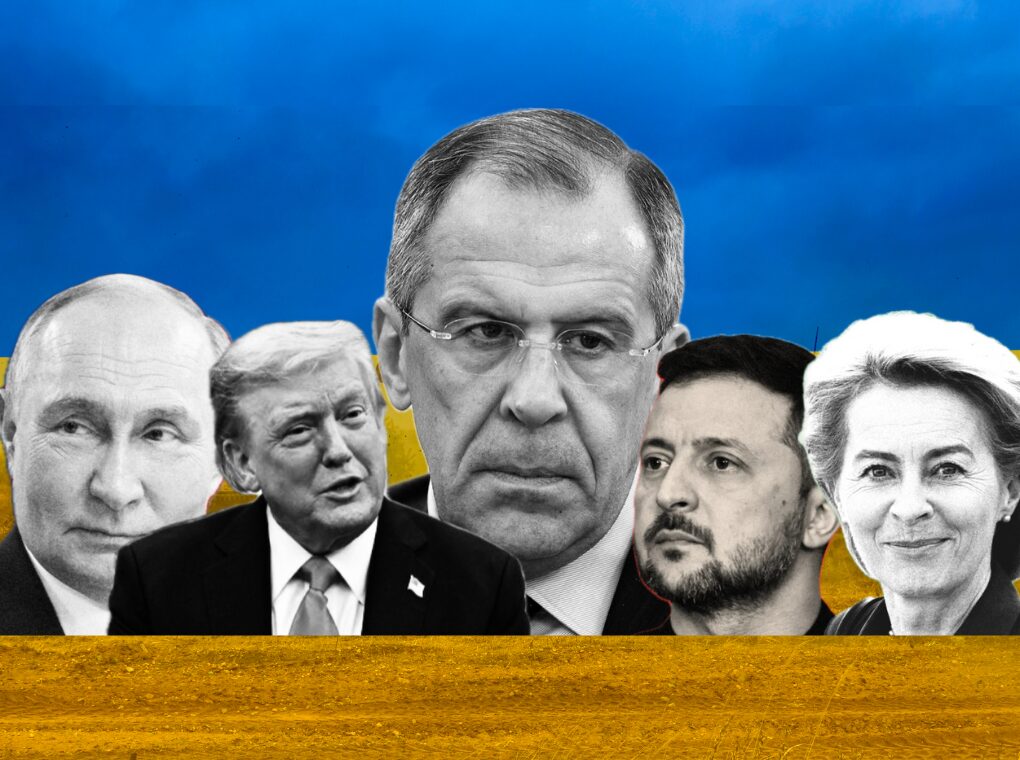Russian Foreign Minister Sergey Lavrov has recently intensified his critique of Europe’s approach to the ongoing war in Ukraine, claiming that European decision-makers have worsened the conflict and are hindering efforts to establish peace. Lavrov’s statements, made during an interview with NBC News, add to the complex diplomatic exchanges surrounding the Russia-Ukraine war.
Criticism of European Mediation
Lavrov directly accused leaders across Europe of deliberately “prolonging the conflict” in Ukraine, stating his opinion that these leaders are less interested in forging peace and more intent on sustaining pressure against Moscow. According to Lavrov, their actions at recent Washington meetings, alongside Ukrainian President Volodymyr Zelenskyy, suggest a preference for ongoing hostilities over negotiation.
“This reaction after the Washington summit, with European representatives gathering and their follow-up actions, clearly shows they do not want peace,” Lavrov asserted in his interview.
United States’ Mediation Efforts
The comments followed remarks from U.S. Vice President JD Vance, who reiterated the American administration’s intention to facilitate peace talks between Russia and Ukraine. Lavrov contrasted what he perceives as President Trump’s pursuit of peace with what he sees as Europe’s reluctance, although these statements come amid continued strains between Washington and Moscow.
Lavrov denied that Russian forces had targeted civilians during military operations in Ukraine and minimized U.S. warnings about imposing severe sanctions or tariffs on Russia. Instead, he maintained that both President Putin and President desire a peaceful outcome, and highlighted the mutual respect between the two leaders.
Zelenskyy’s Push for Direct Dialogue
On the other side of the conflict, Ukrainian President Volodymyr Zelenskyy has renewed his appeals for a direct meeting with Russian President Vladimir Putin. Zelenskyy argued that face-to-face dialogue remains “the most effective way forward” for negotiating a resolution to the war.
His statements came amid significant developments on the battlefield: Ukrainian forces reportedly recaptured three villages in the Donetsk region, a territory previously controlled by Russian troops. Additionally, Ukraine launched drone attacks that triggered a fire at a Russian nuclear power plant, underscoring the intense and unpredictable nature of the current conflict.
During his address, which was attended by various Western officials—including the U.S. envoy Keith Kellogg, who received Ukraine’s Order of Merit—Zelenskyy vowed to keep pressing Russia towards a peaceful settlement.
Disputes Over the Negotiating Process
Lavrov, meanwhile, dismissed criticisms surrounding Trump’s frustration with stalled negotiations and condemned Western leaders for allegedly making excuses to delay meaningful talks. He characterized Western calls for meetings as posturing, suggesting they use the process merely as a cover for further escalation.
From the Ukrainian perspective, Zelenskyy responded directly to these allegations. He asserted that Western support has been essential for Ukraine’s defense and emphasized his openness to talks, provided that negotiations are sincere and result in concrete steps toward peace.
Military Gains and Peace Prospects
The recapture of several villages by Ukrainian troops in Donetsk was confirmed by the Commander-in-Chief, Oleksandr Syrsky. These military advances were seen as crucial by some Ukrainian officials, as they may improve Ukraine’s bargaining position in any future peace talks. Donetsk remains a focal point in ongoing discussions about a possible ceasefire or negotiated settlement.
Persistent Uncertainty in the Path to Peace
With both sides continuing to issue strong statements and military actions persisting on the ground, questions remain about the true prospects for peace between Russia and Ukraine. The international community, notably the United States and European nations, remains divided not only in their positions but also in their strategies to end the conflict.
As the war goes on, attention is focused on whether Presidents Putin and Zelenskyy will eventually sit down for direct negotiations, which many observers now see as a possible turning point. Until then, diplomatic tensions and military clashes are likely to continue shaping the region’s future.
